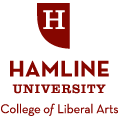Date of Award
Spring 2022
Degree Type
Honors Project
School
College of Liberal Arts
First Advisor
John Mazis
Abstract
In the Aftermath of the Second World War, the United States and The USSR stood as the only true superpowers. Both states held their own spheres of influence, with interests in spreading that influence. With the fear of nuclear war and the still looming shadow of global conflict, a new brand of diplomacy began to take hold as the preferred method of international relations between adversarial states. Soft power was beginning to become an influential means to accomplishing the goal of nations abroad.
The careful curation of print media, literature, and informational campaigns became an important element to how the US chose to present themselves in the USSR in an attempt to realign the views of the Soviet people. Programs ranging from hard news radio broadcasts to cultural exploration magazines earned this brand of public outreach a fitting name, polite propaganda. In my research, I hope to examine the impact that the Cold War had in defining soft power, more specifically one of the tools that falls under the umbrella of soft power—cultural and public diplomacy. Through primary research of policies enacted at the time, and examination of State Department records and interdepartmental notes of the mid to late 1940s, as well as secondary resources concerning early US backed Cold War programs in the Soviet Union, I hope to make clear not only the use of soft power in late 1940s US-Soviet relations, but also the impact public diplomacy had on the direction of the Cold War and future endeavors regarding public diplomacy campaigns.
Recommended Citation
Aloi, Coby, "Soft Power and Polite Propaganda: Public Diplomacy in the Early Cold War" (2022). Departmental Honors Projects. 98.
https://digitalcommons.hamline.edu/dhp/98
dc_type
text
dc_publisher
DigitalCommons@Hamline
dc_format
application/pdf
dc_source
Departmental Honors Projects

